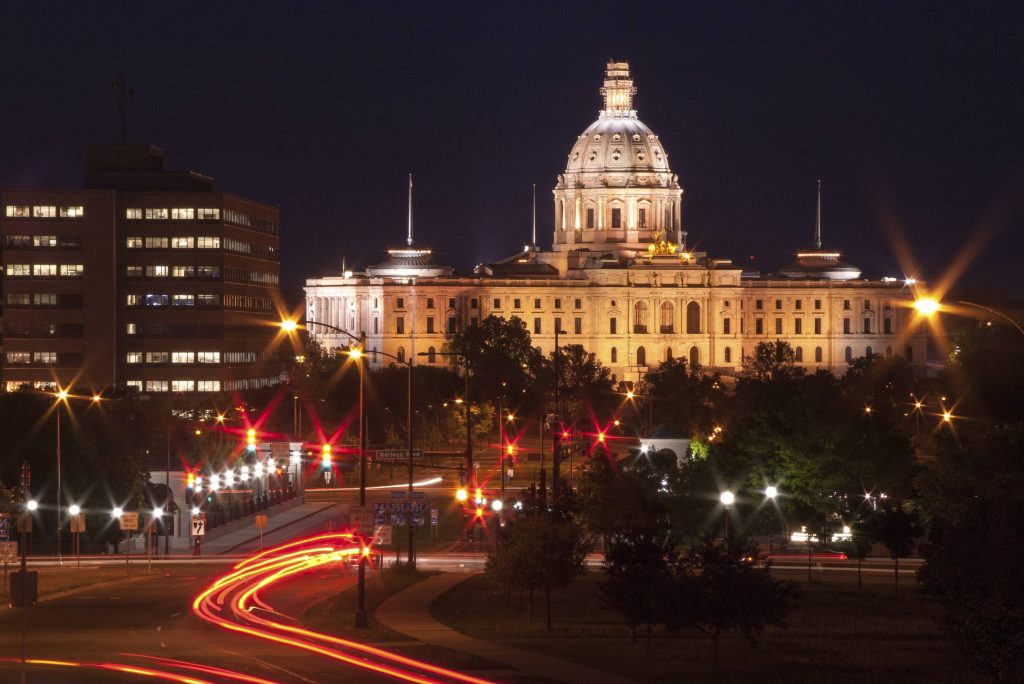2023 Legislative Session Concludes
For the first time in a decade, the legislature and Governor concluded all state government budget work on time, with no need for a special session brushing up against the June 30 fiscal year deadline.
Words to describe the DFL Trifecta’s work this session range from ‘historic and transformational,’ to ‘unsustainable and bonkers.’ The truth is in there somewhere, and a lot depends on how the world’s economy performs in the months and years to come. ‘Aggressive’ seems to be an appropriate word to describe the session’s pace and resulting legislation. One observer noted that decades can pass with little legislative activity and then in one session decades of activity transpires.
All told, 75 chapters of new law were presented to the Governor, including major omnibus budget and policy bills. He signed 74 into law and vetoed one, a bill that would regulate ride share services (Uber and Lyft).
The new state budget will grow substantially as the near entirety of the $27.5 billion available to the legislature for the next four years was committed in some way shape or form. Not including a state budget reserve of roughly $3 billion, they left about $800 million in cash for another cash-funded Capital Investment bill during the 2024 legislative session.
Next November’s budget forecast will be interesting to say the least. The legislature returns to this regular session on February 12, 2024.
Other Bills that May Impact Education
In addition to the many new revenue streams and programs created in the Education bill, several of the other budget bills have items relating to schools, creating programs that schools might potentially participate in. Here’s a brief rundown of what else passed that could impact education:
Jobs & Labor (HF 3035)
- New Terms & Conditions to be bargained, including e-learning days
- Earned Safe & Sick Time
- $10 million for the Drive for Five Initiative, to prepare workers to enter five of the most critical occupational categories in the state with high-growth jobs and family-sustaining wages: technology, caring professions, education, manufacturing, and trades.
- $3 million for competitive grants to support high school robotics teams and prepare youth for careers in STEM fields with a carve-out for internships for high school students to work at private companies in STEM fields
Paid Family & Medical Leave (HF 2)
- 20 weeks
- Floating .7% payroll tax; could rise to 1.2%
- can split 50/50 between ER/EE
- Benefits and payroll tax effective 1.1.26
Taxes (HF 1938)
- Pensions adjustment to age 65: ER up .75, EE up .25
- Several districts received construction sales tax exemptions
Health & Human Services (SF 2995)
- Lead in drinking water 15ppb down to 5 ppb
- School Linked mental health grants
- School based clinics
- Child Care stabilization grants and CCAP
- Creation of the Children, Youth & Families Department
Environment & Climate (HF 2310)
- Solar on Schools (Coops now added)
- HVAC Grants ($50k each)
- Electric School Bus deployment program and funding
Transportation (HF 2887)
- Type III vehicle continued use
- Safe Routes to School funding
- Active Transportation Safety Training
- $50k for education and awareness campaign on motor vehicles passing school busses
- $2,000,000 for grants to school districts, nonpublic schools, charter schools, and companies that provide school bus services for the purchase and installation of school bus stop-signal arm camera systems.
Housing (HF2335)
- Challenge Grant funding a school district, a cooperative unit, or a charter school may receive funding under this section in the form of a grant less than $100,000.
State Government (HF1830)
- Repeal of Local Gov Salary Caps
- Hmong special guerrilla units Remembrance Day (May14): Schools are encouraged to offer instruction about Hmong history
- Juneteenth begins this June
Agriculture (HF 1955)
- Farm2School grants





